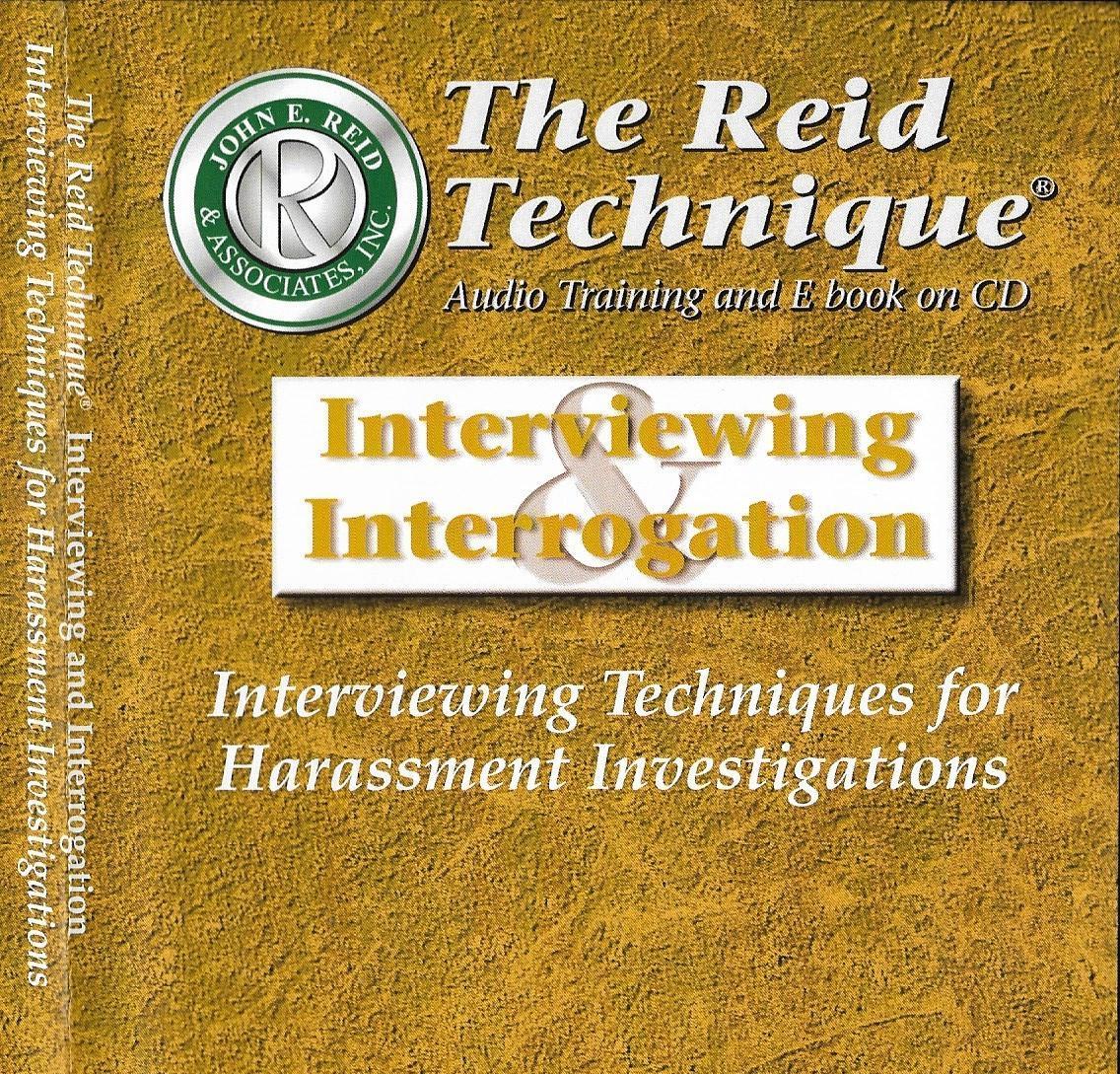Interviewing Techniques for Harassment Investigations-Audio Download

This 3 hour training program offers specific instruction on how to conduct the interview of a complainant and respondent during the harassment investigation. The training is based on 50 years of experience in conducting interviews and offers proven techniques to develop meaningful information to resolve these difficult issues.
The training is divided into 5 modules, with an accompanying 69 page Study Guide. Throughout the course, portions of 22 actual harassment interviews (from audio recorded interviews) are presented to illustrate the principles.
(NOTE - THIS IS THE ELECTRONIC VERSION)
SOME OF THE TECHNIQUES THAT THE LISTENER WILL LEARN INCLUDE
- How to utilize and evaluate a written statement about the complaint
- How to determine when the subject is editing information or fabricating responses
- How to use an Introductory Statement at the outset of the interview to encourage truthfulness
- How the phraseology of the questions can affect the quality and truthfulness of responses
- How to structure the interview, including the use of Clarifying, Direct, and Follow-up Questions
A DETAILED LOOK AT THE TOPICS COVERED IN THIS 3 HOUR AUDIO PROGRAM
- Introduction
- Factors that complicate harassment investigations
- Categories of harassment complaints
- Investigating a person’s opinions or beliefs
- Goals of the complainant’s interview
- Characteristics of the interviewer
- Importance of conducting a prompt investigation
- Necessity of revealing details to the respondent
- Characteristics of the interviewing environment
- Behavior Analysis
- Key concepts
- Principles of behavior analysis
- Evaluating verbal behavior
- Evaluating nonverbal behavior
- Evaluating paralinguistic behavior
- Conducting the Complainant’s Interview
- The initial meeting with the complainant
- The complainant’s written questionnaire
- Analysis of the questionnaire
- Procedures for conducting the interview
- Conducting the Respondent’s interview
- Notifying the respondent of the investigation
- Evaluating the respondent’s written questionnaire
- Asking direct questions
- Asking follow up questions
- Use of summary statements
- Tutorial
- Conducting an Internal Investigation
This program will significantly increase the investigator's ability to resolve harassment investigations by strengthening the quality of the investigative interview process.